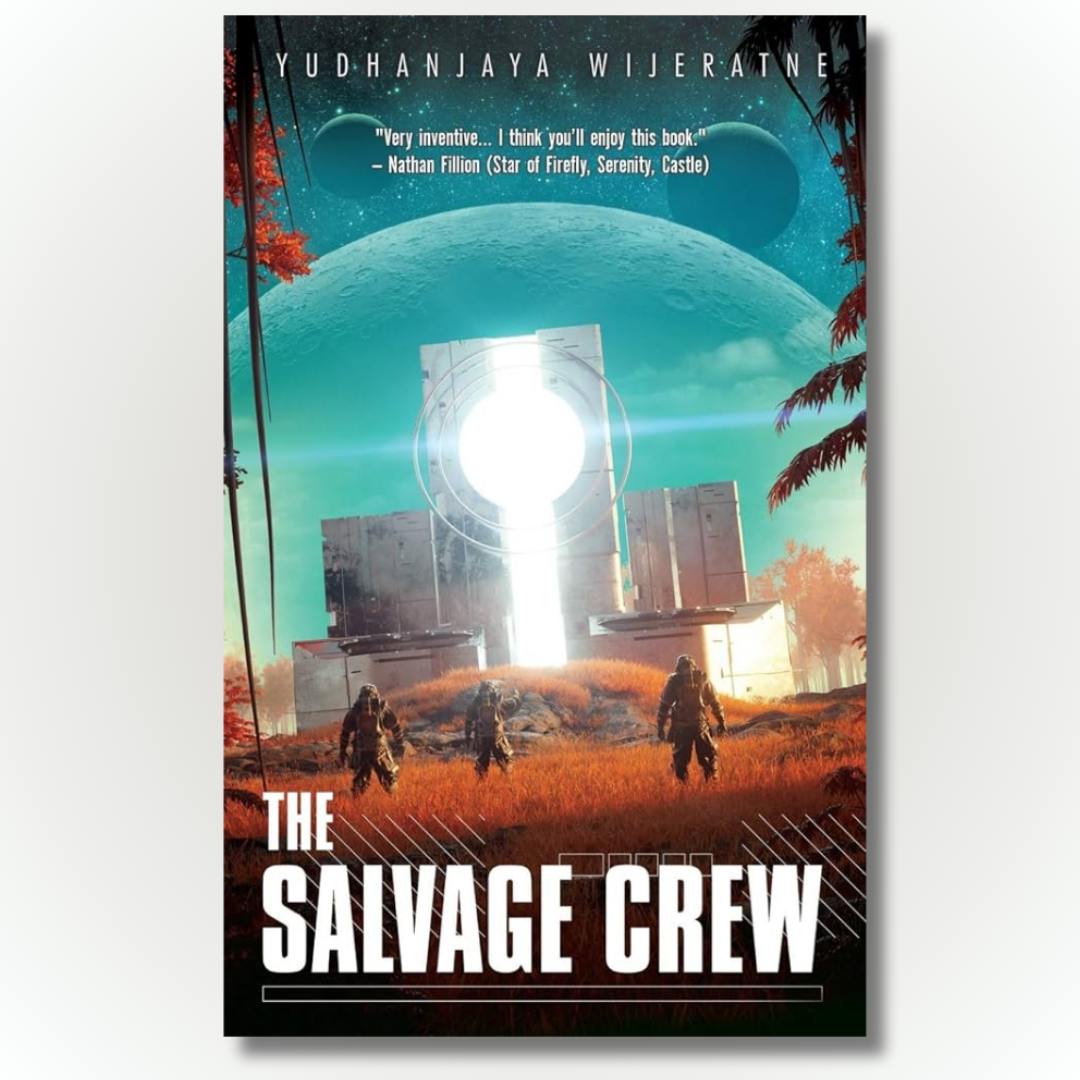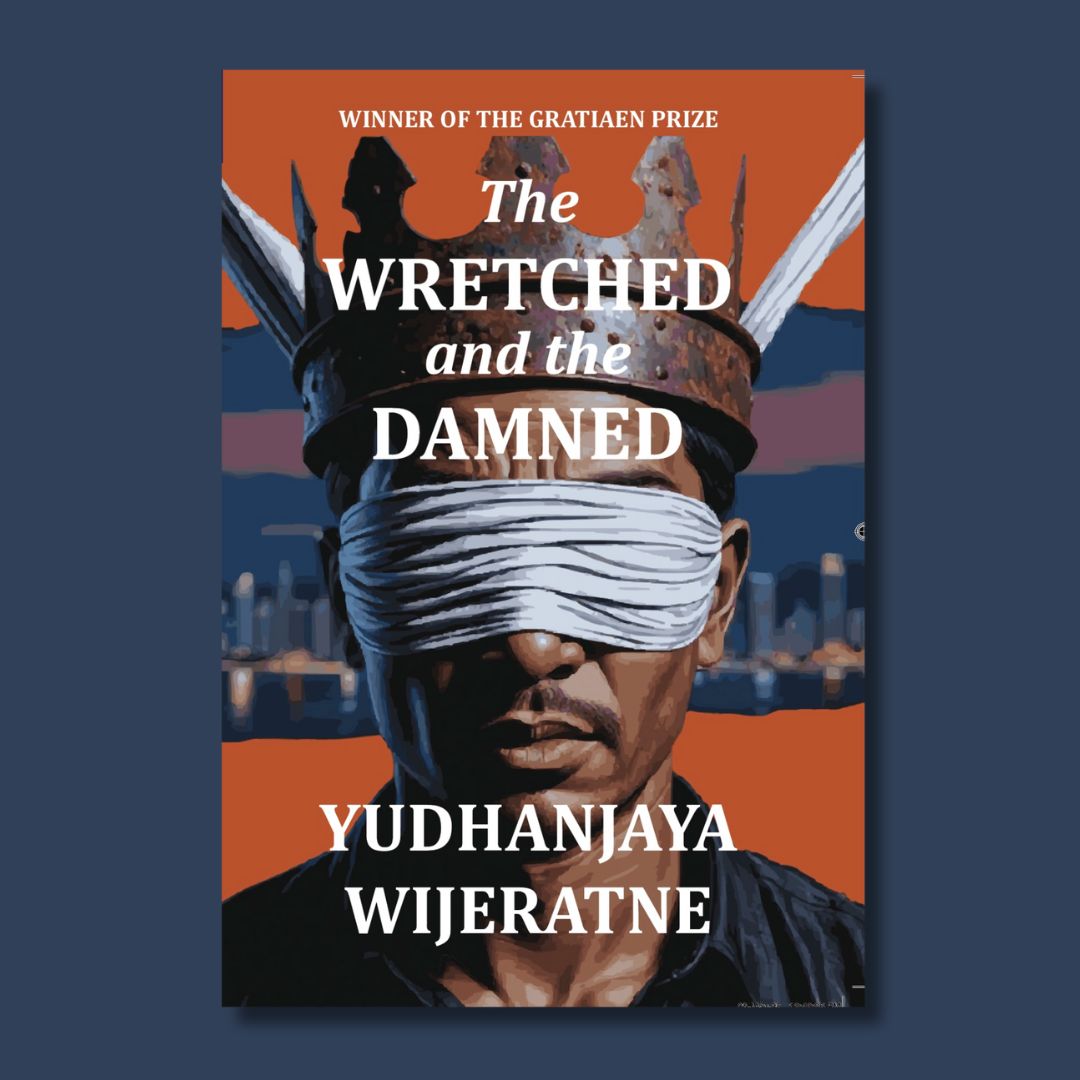
Foreword to the Salvage Crew (2020)
In which I explain my technical shenanigans involved in creating the Salvage Crew, the how, and the why.
A group of superpowered malcontents take down the corrupt, nepotistic government of Sri Lanka.
I want to start by saying that I began writing this book in 2020. Given everything that happened in Sri Lanka in 2022, this seems like an important disclaimer.
The world was in lockdown, and, as is my wont, I was spending far too much time researching how Sri Lanka worked. The economy. The infrastructure. The little cabals, the groups, the things that make us a civilization instead of just a few isolated fireflies, peering into our crystal balls. I worked in public policy. One of my last projects had been for the UNDP - predicting grand movements into the near future, problems, and potential solutions. To people in my line of business, the collapse of Sri Lanka was wasn’t so much writing on the walls as a giant neon skyscraper screaming into the void. It was coming; the question was what would break first.
I was fresh off the success of The Salvage Crew and under some pressure from publishers for the next big book. I wanted to try my hand at something very different. And so I set out to write another novel.
A few things swirled in my head. The first was my obsession with the state of the world. Another was Samit Basu’s Turbulence, a landmark book about superheroes emerging in India and Pakistan. A woman who dreams of breaking away from her domestic life and having a career finds herself with the ability to split off multiple selves. A pilot learns to fly unaided - and the world watches and realizes that Superman exists; he just isn’t American. All these people had their own things going on, firmly rooted in the societies they were born into, in a zeitgeist that felt very real. I had spent much of my imagination out among the stars, and in the future, exploring worlds that could be: Turbulence inspired me to return to the world that is. What would Sri Lankan superheroes look like? And what if they weren’t exactly superheroes, but activists and radicals? Arumugam, who opens this book, came first. Thanthri next; and then Mudalali, and Kuveni, and so on.
One last thing was a technical challenge. Most new writers are warned never to write multiple first person POVs, lest they confuse the reader. And while I understand why that rule of thumb exists, I decided to break it in style, and see exactly how many first-person perspectives I could juggle. Let the reader be confused. After all, we are all the heroes of our own story.
So I made characters I found fun. I thought about how I would go about toppling Sri Lanka, if I were evil, or had a few weekends to spare. And then I started writing. The titles suggested themselves: Once Upon a Time in Colombo (ah, but someone beat me to that), Letters from the Apocalypse (didn’t quite fit) . . . and ultimately it became a riff on Fanon’s The Wretched of the Earth. That book looked at the dehumanizing effects of colonialism on the individual and the nation; it seemed fitting, since many of my characters are both more and less than human at the same time, dehumanized and dehumanizing in turn.
On the 9th of July, 2022, I set off on my bicycle to report on the massive crowd of protestors converging on Galle Face in Colombo. My organization had mapped over six hundred protests across the country, and it was essentially my job to keep an eye on what was happening. On that day, the Sri Lanka public’s long-suffering patience broke, and protestors stormed Temple Trees, the Presidential Secretariat and the President’s Mansion.
As I found myself in the middle of a mob charging through the gates, my first thought was of this book: I underestimated. My own fictional collapse was still, in some ways, a little kinder than the real thing. It is every futurist’s eternal doom; the real future is always wilder than our wildest imagination. The scientist and philosopher Alfred Korzybski once remarked that “the map is not the territory,” which is a humbling lesson. Hence the last ingredient of this book: the idea that time makes fools of us all.
Sri Lanka, if nothing else, continues to boldly take the stupidest possible road in the garden of forking paths. There is a very real chance, if you’re Sri Lankan, that this piece of fiction is actually a little less eventful than your year. Enjoy.
